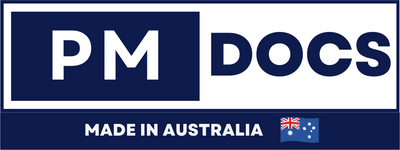Key Data Governance Roles And Responsibilities For Australian Companies
Introduction
In today's data-driven world, organizations must ensure that their data is managed properly to maintain its integrity, security, and usability. This is where data governance comes into play. But what exactly is data governance, and why is it crucial for businesses in Australia? In this article, we'll explore the roles and responsibilities within a data governance framework, focusing on the Australian context. By understanding these key roles, you can better implement effective data management practices in your organization. Data governance refers to the process of managing the availability, usability, integrity, and security of the data used in an organization. It involves establishing policies, standards, and procedures to ensure that data is handled appropriately. A strong data governance framework helps organizations make informed decisions, comply with regulations, and maintain trust with customers.

Importance Of Data Governance In Australia
Australia has seen a surge in data collection across various sectors, from government and healthcare to finance and retail. With this increase, the importance of data governance has grown. Australian organizations must adhere to local laws and regulations, such as the Privacy Act 1988, which governs how personal information is collected, used, and disclosed.
Effective data governance ensures compliance with these regulations and helps organizations mitigate risks associated with data breaches and misuse. It also supports data-driven decision-making, leading to improved business outcomes.
Key Roles In A Data Governance Framework
A successful data governance framework involves various roles and responsibilities. Here are some key roles commonly found in Australian organizations:
1. Data Governance Council
The Data Governance Council is the governing body responsible for overseeing data governance initiatives. This council typically includes senior executives and stakeholders from different departments. Their primary responsibilities include setting the overall data governance strategy, approving policies, and allocating resources.
2. Data Governance Lead
The Data Governance Lead is responsible for implementing and managing the data governance framework. They work closely with the Data Governance Council to ensure alignment with the organization's goals. Key responsibilities include developing policies, coordinating with data stewards, and monitoring compliance.
3. Data Stewards
Data Stewards play a critical role in data governance by managing the day-to-day operations of data management. They are responsible for ensuring data quality, consistency, and accessibility. Data Stewards work closely with various departments to enforce data policies and resolve data-related issues.
4. Data Custodians
Data Custodians are responsible for the technical aspects of data management, such as data storage, security, and backup. They collaborate with IT teams to ensure that data systems are secure and that data access is properly controlled.
5. Data Analysts
Data Analysts use data to generate insights and support decision-making. They work with data stewards to ensure data accuracy and reliability. Data Analysts play a crucial role in transforming raw data into meaningful information that can drive business strategies.
Responsibilities Of Data Governance Roles
Each role within a data governance framework has distinct responsibilities. Here's a closer look at what each role entails:
1. Data Governance Council Responsibilities
-
Establish and communicate the data governance vision and strategy.
-
Approve and prioritize data governance initiatives.
-
Allocate resources and budget for data governance activities.
-
Monitor and review the effectiveness of data governance programs.
2. Data Governance Lead Responsibilities
-
Develop and implement data governance policies and procedures.
-
Coordinate with data stewards and other stakeholders to ensure compliance.
-
Monitor data quality and address any issues.
-
Provide training and support for data governance initiatives.
3. Data Steward Responsibilities
-
Ensure data accuracy, consistency, and completeness.
-
Implement data quality controls and perform regular audits.
-
Collaborate with other departments to enforce data policies.
-
Address data-related issues and provide solutions.
4. Data Custodian Responsibilities
-
Manage data storage, security, and backup.
-
Implement access controls to ensure data protection.
-
Collaborate with IT teams to maintain data systems.
-
Monitor system performance and address technical issues.
5. Data Analyst Responsibilities
-
Analyze data to generate insights and support decision-making.
-
Ensure data accuracy and reliability through validation and cleansing.
-
Collaborate with data stewards to resolve data issues.
-
Present data insights to stakeholders in a clear and actionable manner.
Challenges And Best Practices In Data Governance
Implementing a data governance framework is not without challenges. Organizations often face issues such as data silos, lack of resources, and resistance to change. To overcome these challenges, consider the following best practices:
-
Foster a Data-Driven Culture: Encourage a culture that values data-driven decision-making and promotes data literacy across the organization.
-
Engage Stakeholders: Involve stakeholders from various departments in the data governance process to ensure buy-in and collaboration.
-
Leverage Technology: Use data governance tools and technologies to automate processes and improve efficiency.
-
Provide Training: Offer training programs to educate employees about data governance policies and practices.
-
Monitor and Adapt: Continuously monitor the effectiveness of data governance initiatives and make necessary adjustments.
Conclusion
Data governance is essential for organizations in Australia to manage their data effectively and comply with regulations. By understanding the key roles and responsibilities within a data governance framework, organizations can implement best practices and overcome challenges. This, in turn, leads to improved data quality, better decision-making, and enhanced business outcomes. As data continues to play a vital role in business success, investing in data governance is more important than ever.




